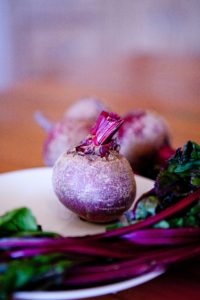Running is one of the most popular forms of exercise in the world with the 5K being the most common distance raced, followed closely by the half-marathon. In 2017, more than 50,000 people in Canada ran a 5K race. There are so many training resources out there to guide them through a training schedule. They often make suggestions regarding nutrition, supplements, and how to eat around a race, but how much of this is backed by science. There are so many sport supplements on the market right now, how do they know which one would be the best for them. Below I have outlined the top 5 supplements every runner should know about that have been heavily researched for runners.
5 supplements that every runner should know about
Carbohydrates
Yes, Carbs. Carbohydrates for the fast fuel for your muscles during exercise. Exercise and muscle contraction stimulates more expression of glucose transporters on muscle cells. This allows your muscles to dramatically increase the amount of glucose absorbed to better fuel your workout. The current recommendation backed by science is to consume 30-60g of carbohydrates during exercise per hour of activity. Does this mean that running during a 5K you need to be drinking a gatorade? No! For exercise under 1 hour you do not need to be consuming carbohydrate to fuel your workout, the carbohydrates in your body and muscles are enough. If you workout longer, then you should be considering carbohydrate supplementation during your workout. Good sources of carbohydrates during exercise include: dried fruit, candied honey, gatorade, gels (Honey Stinger is a clean, organic brand).
Caffeine
90% of people are already consuming caffeine on a regular basis, but can use their cup of joe to run a faster race? Maybe. Caffeine supplements can decrease the perception of effort (make the run seem easier), decrease fatigue, and decrease pain. Sounds great right? Unfortunately, caffeine supplements don’t work for everyone. Researchers are hypothesizing that this is due to your genetics and how you metabolize caffeine. The other factor is how much caffeine you consume on a regular basis. More regular caffeine consumption will decrease the effectiveness of caffeine supplements, therefore, if you plan to use a caffeine supplement, it is recommended to avoid coffee or tea for at least 1 week before your race. Sources of caffeine: coffee/tea before the race, flat pop, gels, pre-workout drinks
Inorganic Nitrates

This is the active compound found in beet juice and in leafy greens. These are activated in the bound to form nitric oxide. Nitric oxide is a very strong vasodilator, which means that it increased the size of the blood vessels allowing more blood to reach the tissues. How much do you need to take? Research has supported taking 500mg of dietary nitrates 2.5 hours before exercise, as well as consuming them in the week prior to race day. Sources of dietary nitrates include: beets, celery, and leafy greens (100g of fresh vegetable equals ~250mg of nitrates), or supplements.
Vitamin D
This is a super-vitamin, not only is it beneficial for almost everyone, it affects brain health, immune health, and now exercise performance! The vitamin D supplement recommendation for runners comes out of research that has found that a vitamin D deficiency can impair muscle repair and function, and well as impair the immune system. This is important for runners because people who log more than 20 km per week are at a significant increase in colds and flus, and having a vitamin D deficiency will only add to this. The recommendations suggest that it is beneficial for runners to keep their blood vitamin D levels at 75-120 nmol/L. If you have not had your vitamin D levels tested before, ask your doctor to test it at your next appointment.
Beta-Alanine
In the muscle, beta-alanine is converted to carnosine. Carnosine acts to neutralize the pH in the muscle which can delay the onset of fatigue and increase performance. Best results are seen with long term use of beta-alanine. Again, this supplement may produce a noticeable difference in every runner, but it is something that you can trial during training and leading up to a race. Sources of beta-alanine: supplements.
Other supplements to consider include: sodium bicarbonate, creatine, CoQ10, BCAAs, l-glutamine, 1-carnitine, l-arginine, and rhodiola.
As always, I would love to chat with you about any of your supplement needs or questions so that you can make the best decision for your health and performance. Click one of the links below to schedule a time to chat!
Yours in health,

References
- Bubbs M. Peak, The New Science of Athletic Performance That is Revolutionizing Sports. Chelsea Green Publishing; 2019.
- Murr, C. et al (2012, Dec). Vitamin D deficiency parallels inflammation and immune activation, the Ludwigshafen Risk and Cardiovascular Health (LURIC) study. Clin Chem Lab Med. 50 (12): 2205-12.
- Barker, T. et al. (2013, April). Higher serum 25-hydroxyvitamin D concentrations associate with a faster recovery of skeletal muscle strength after muscular injury. Nutrients. 5:1253-1275
- Lockwood, C: Chapter 22: An overview of sports supplements: In Essentials of Sport Nutrition & Supplements. Edited by Antonio J, Kalman D, Stout J, et al. Humana Press Inc., Totowa, NJ; 2007.
- Stellingwerff T, Bovim IM, Whitfield J. Contemporary Nutrition Interventions to Optimize Performance in Middle-Distance Runners. Int J Sport Nutr Exerc Metab. 2019;29(2):106-116.

